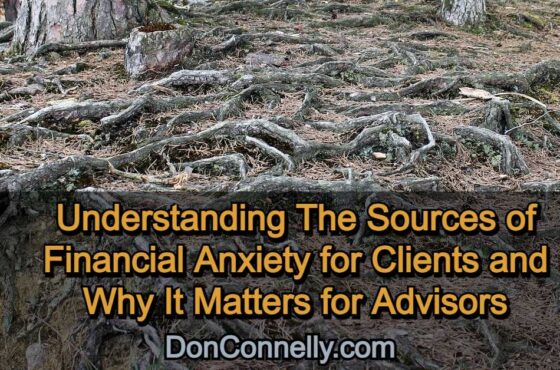How to Anticipate, Overcome and Avoid Getting Objections
 In our most recent webinar we discussed the issue of client objections. Why do we get objections, what objections are we likely to get, and how do we overcome them? More to the point, can objections be avoided entirely?
In our most recent webinar we discussed the issue of client objections. Why do we get objections, what objections are we likely to get, and how do we overcome them? More to the point, can objections be avoided entirely?
We concluded that successfully overcoming objections is a stepping stone in the relationship-building process.
If you, the Advisor, fail to address the prospect’s concerns, he or she will not trust you. If you succeed in allaying the person’s fears, you are one step closer to gaining trust.
There are not that many objections and there are very few original objections.
Do not make them out to be bigger than they are. Take the time to learn how to overcome objections and you will find yourself eagerly anticipating objections.
Objections stand between you and opening the account, so the sooner and better you deal with them, the faster you will open the account.
Why might people object?
How about the market being too high?
How about an avalanche of bad news, from ISIL to the mid-term elections to an impending jump in interest rates?
How about the fact that everyone hesitates when it comes to making major decisions involving money?
What about, “I already have an Advisor?”
What about the fact that people don’t buy what they don’t understand?
There are other reasons, as well. People are afraid of making a mistake. People very often don’t see the value you are offering. The real needs have not been discovered. And on and on.
Overcoming objections is a rote exercise and takes practice.
It is a three-step process that must be learned. Restate the objection in question form; provide any additional information necessary and introduce additional benefits. It’s that simple. Turn the objection into a question and answer the question.
Be sure you understand the question. Don’t ramble. Remember that you’re the expert. Don’t guess. Admit when you don’t know. Be honest when you can’t answer the question.
We next discussed what we can do to avoid any resistance or objections to what we have to offer.
What impression must we make that will cause people to follow our advice with no hesitation? What is the complete package? I find it difficult to escape the comparison with the family doctor.
Next to the family doctor, you are the most important person the family will ever meet. In my opinion, you should embrace the same qualities.
It pays great dividends when you are confident, knowledgeable, charismatic, likable, trustworthy, mature, enthusiastic and smart. You need to be perceived as a trusted leader if you wish to attain another person’s utmost trust.
The reality is that people don’t want more information. They just want someone they can trust.
The most basic suggestion for establishing trust is to always do what you say you are going to do, down to the simple things like calling someone when you say you will call. Keep your word. Excuses and trust are mutually exclusive, especially when you are dealing with someone’s money.
If you tell someone you will call him later today and you find you can’t call him, call him to tell him you can’t call him. You will be forgiven. Never, ever be even a minute late for anything. Tell the truth, even when it hurts. This is the hardest challenge of all. We all tell white lies for various reasons and that is not a good thing. Be open with your clients. Own your mistakes.
You can’t demand trust. You have to earn it.
Trust is basically the belief in the reliability of someone. If people trust you, they will assume you won’t let them make a mistake. If they don’t trust you, they won’t act. That’s of utmost importance when your goal is to change someone’s mind.
We talked about the different levels of trust and which level is the most important for an Advisor to attain.
We discussed the need to not only be able to give a compelling presentation, but the need to know which presentation to give.
And lastly, we discussed the proper combination of competence and likeability needed to win over a new client. You are seen as likeable when it is apparent you are working to figure out how to help someone else get what they need. Trust you earn over time.
Objections in some form will always be a part of your life.
Objections to getting started are commonplace. Delaying taking action is a knee-jerk reaction, especially when undertaking a new venture.
Giving out too much information will earn you an objection. People don’t buy what they don’t understand. The more you flood someone’s senses with new information, the less they understand. Verbal spamming invites objections.
Objections will come up if the other person doesn’t like you. We all do business with people we like. People may make an allowance for an Advisor who is not as competent as he or she might be, especially if they like the Advisor. Nobody makes an allowance for a competent Advisor who is not likable.
But objections can be forestalled if the relationship is cemented in trust.
Realize people are doing business with you, not with your company. Describe the downside. Team up with the client. Be honest. Apologize when it is called for. Preserve the client-Advisor trust.
The lesson remains the same. People are not looking for more information. People are looking for someone they can trust. If people like you, trust you and think you are smart, the objections never see the light of day.
Get this webinar replay today to learn how to handle objections!

Premium Webinar, free for PLATINUM members of Don Connelly 24/7 Learning Center



